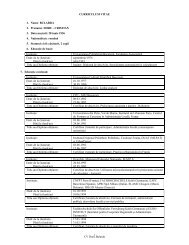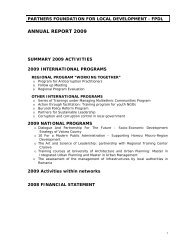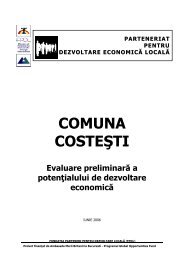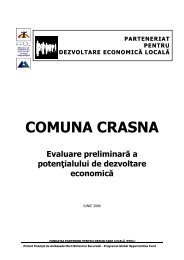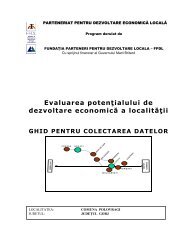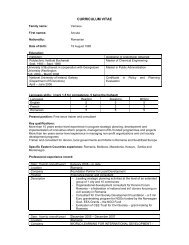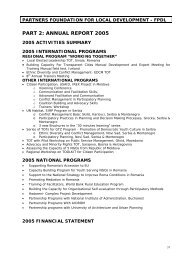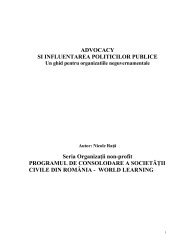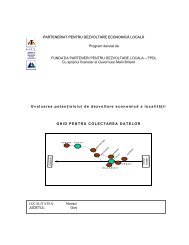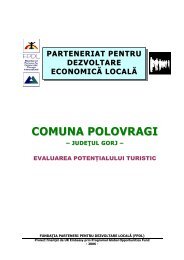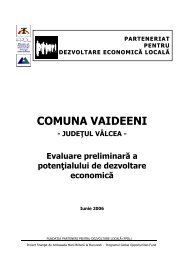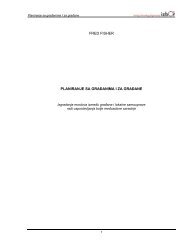Organizational Development: A Manual for Managers and ... - FPDL
Organizational Development: A Manual for Managers and ... - FPDL
Organizational Development: A Manual for Managers and ... - FPDL
Create successful ePaper yourself
Turn your PDF publications into a flip-book with our unique Google optimized e-Paper software.
Answers to this question will vary from very precise to very abstract. I.e. “the result of the service is<br />
the distribution of social support to 3000 families each month” or “the result is the improvement of<br />
people's cultural level”. In case of a very abstract definition of the result the auditor should ask if<br />
there are more precise (quantitative) definitions, because the interviewee may think that the<br />
question is about the mission of the subdivision. Additionally, the auditor may ask if the defined<br />
result depends on the work of the subdivision. I.e. a specialist from the department of industry <strong>and</strong><br />
entrepreneurship (Chuguev) claimed that their result is the absence of debts of the city's<br />
enterprises to the budget of the municipality <strong>and</strong> state, although the subdivision is only collecting<br />
<strong>and</strong> distributing the related in<strong>for</strong>mation.<br />
Only if the auditor is assured that the result cannot be <strong>for</strong>mulated more precisely, he can record<br />
the abstract definition of results, <strong>and</strong> claim in the audit report that there are no quantitative criteria<br />
<strong>for</strong> evaluation of the service results.<br />
Negative <strong>for</strong>mulation of results may point to the problems related to the measurement of results. In<br />
most cases negative <strong>for</strong>mulation of the desirable result is not achievable or is ambiguous (absence<br />
of customer complains may mean that the department is working well, but also that complaints are<br />
not recorded).<br />
The auditor is not only collecting opinions of the employees about the criteria used to evaluate the<br />
achievement of results. He needs to underst<strong>and</strong> <strong>and</strong> report if the results are defined <strong>and</strong> the<br />
criteria exist. It is of up most importance during the preparation of the audit report. When there are<br />
no clear criteria or the interviewee provides various possibilities how the results COULD be<br />
measured, although it is obvious that nobody thought about it be<strong>for</strong>e, the auditor should record this<br />
in<strong>for</strong>mation correspondingly: there are no criteria, criteria are of very general nature <strong>and</strong> not<br />
measurable, criteria are inadequate, criteria are not documented, although the interviewees<br />
provided their opinion that as criteria the following data could be used etc. It is important to<br />
separate evaluation by the auditor from the opinions provided during the interviews.<br />
Special attention should be given to the processes with contradictory criteria <strong>for</strong> evaluation of<br />
results. I.e. in department of manufacturing, trade <strong>and</strong> domestic services one of the criteria <strong>for</strong><br />
evaluation of results is decreasing number of fines to the shop-owners, <strong>and</strong> another is increasing<br />
revenues to the budget from the fines. It should be examined if there are priorities set, when<br />
contradictory results are present, <strong>and</strong> who have set the priorities.<br />
177



